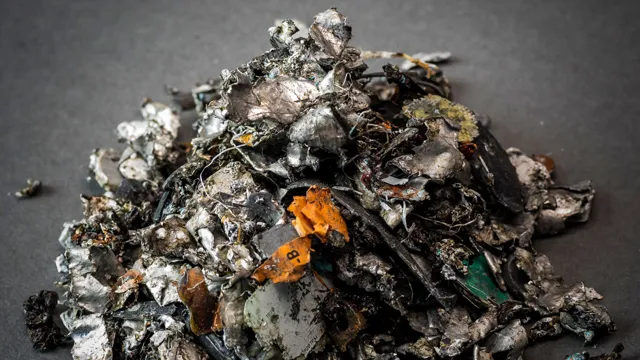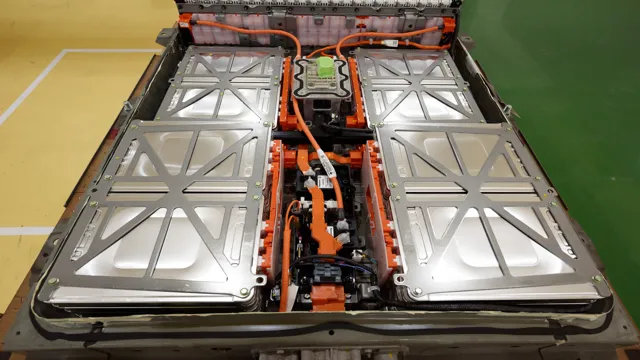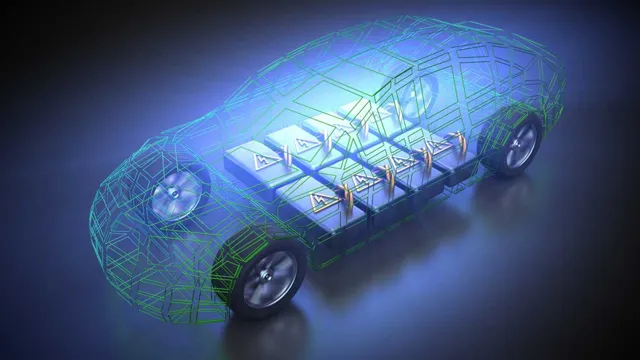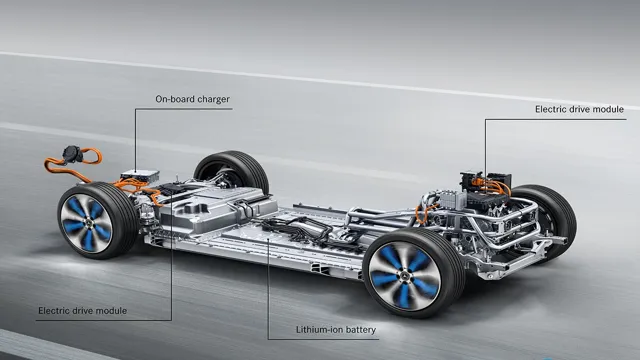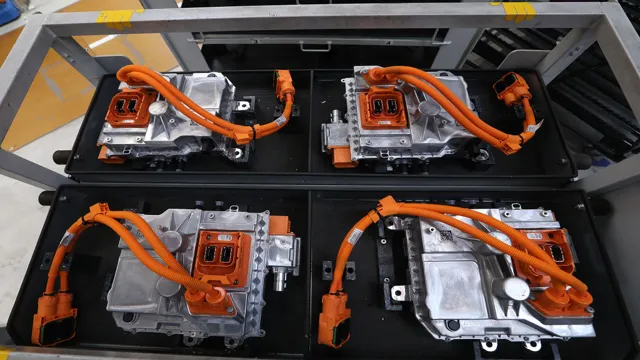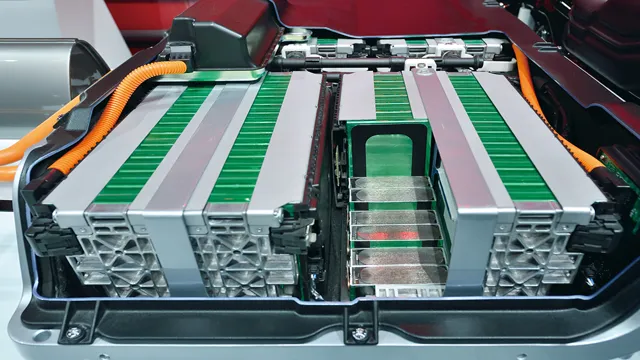Uncovering the Truth: How Ecologically Friendly Are Electric Car Batteries?
Electric cars have become increasingly popular in recent years, with drivers across the world embracing the environmental benefits that come with these vehicles. One of the key components of electric cars is their batteries, which power the car and allow it to run without emitting harmful gases into the atmosphere. However, there is a growing concern about the impact that these batteries have on the environment.
While electric car batteries are cleaner than traditional car batteries, they still have a significant environmental impact. In this blog post, we will explore the impact of electric car batteries on the environment and discuss ways in which the industry is working to minimize this impact.
What’s in an Electric Car Battery?
The batteries in electric cars are made up of different chemical components, including lithium and cobalt, which are known to pose environmental risks if not correctly disposed of. While these batteries are incredibly efficient and eco-friendly compared to traditional gasoline engines, they do contain chemicals that can be harmful to the environment if not adequately managed. However, many battery manufacturers are working to improve sustainability by using materials that are recycled or sourced from more ethical mines.
In the end, the overall impact of electric car batteries on the environment largely depends on how they are manufactured, used, and disposed of. While it is true that electric car batteries contain toxic materials, these risks can be managed through responsible handling and recycling practices that prioritize minimizing environmental harm.
Materials Used
Electric car batteries are revolutionizing the automotive industry by providing low-emission and efficient modes of transportation. But have you ever wondered what lies inside an electric car battery? The main components of an electric car battery include lithium-ion cells, a cooling system, and a control unit. The lithium-ion cells are the heart of the battery, responsible for storing and releasing electrical energy.
They use a combination of lithium, cobalt, nickel, and manganese to create a chemical reaction that stores energy. The cooling system is responsible for maintaining the temperature of the battery within the optimal range, preventing overheating and potential damage. Finally, the control unit monitors and regulates the flow of electrical energy, ensuring safe and efficient operation.
So, next time you see an electric car, remember that the battery inside contains advanced technology and a complex arrangement of materials working together to power the vehicle.
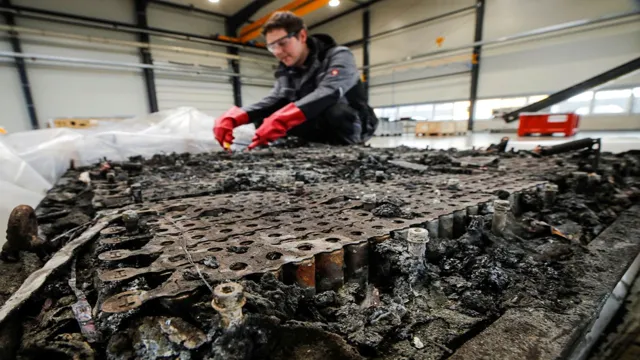
Toxicity Levels
Toxicity levels in an electric car battery are a concern for many people. While electric cars are seen as a more environmentally friendly mode of transportation, the materials used in their batteries can still be harmful if not properly disposed of. Most electric car batteries contain metals such as lithium, cobalt, and nickel, which are highly toxic if they leach into the ground or water sources.
However, these materials are also necessary for the efficient operation of the batteries, meaning that finding a balance between functionality and safety is of the utmost importance. If handled and disposed of responsibly, the toxicity levels of electric car batteries can be mitigated, making them a viable option for eco-conscious drivers.
Environmental Impact of Battery Production
Are electric car batteries toxic for the environment? The answer is not a simple yes or no. While it is true that production of these batteries involves the extraction of rare metals and minerals, which may have environmental impacts, many companies are taking steps to minimize their carbon footprint. For instance, Tesla has plans to invest in recycling technologies that will allow them to repurpose old batteries.
Additionally, electric vehicles have a much lower carbon footprint than gas-powered cars over their lifetimes, and they emit less greenhouse gas emissions. Overall, the environmental impact of battery production depends on the methods used in the extraction and disposal of raw materials, as well as the disposal of old batteries. However, electric vehicle technology is continually evolving, and as companies work to create more sustainable battery options, we can hope to see even more positive impacts on the environment.
Carbon Emissions
When it comes to the production of batteries, carbon emissions play a significant role in its environmental impact. The process of extracting and processing raw materials for battery production releases a significant amount of carbon into the atmosphere. Moreover, the manufacturing process, transportation, and disposal of batteries contribute to increased carbon emissions as well.
However, it is essential to note that the carbon footprint of batteries differs depending on their type and use. For example, electric car batteries have a more significant carbon footprint during production, but their use contributes to significantly lower emissions compared to traditional gas-powered cars. Similarly, rechargeable batteries for household use have a smaller carbon footprint compared to single-use alkaline batteries.
As we continue to rely on batteries in our daily lives, it is crucial to consider their environmental impact and make sustainable choices.
Water Pollution
Water Pollution The production of batteries has an undeniable impact on the environment, particularly on water bodies. This is because the production process requires a significant amount of water, which leads to an increase in wastewater and the release of harmful chemicals and heavy metals into nearby water sources. These pollutants can cause severe damage to aquatic ecosystems and affect the health and survival of marine life.
Furthermore, battery components can also leak from landfills and contaminate surrounding soil and groundwater. It is crucial that manufacturers prioritize responsible production practices and invest in sustainable technologies to limit the environmental impact of battery production on our water resources. As consumers, we can also contribute to the cause by proper disposal of batteries and opting for more eco-friendly alternatives when possible.
Let’s take action to safeguard our precious water resources and protect the environment for future generations.
Natural Resource Depletion
The production of batteries is essential for our modern lifestyle, but it comes at an environmental cost. The manufacturing process of batteries requires significant amounts of natural resources such as copper, lithium, cobalt, and nickel that are extracted from the earth. These resources are limited and their extraction leads to soil erosion, water pollution, and deforestation.
Additionally, the production of batteries generates greenhouse gas emissions and toxic waste, which further harms the environment. As demand for batteries grows with the increasing popularity of electric vehicles and renewable energy storage, it’s essential that we find ways to mitigate the environmental impact of battery production. One solution is to invest in research to find alternative materials for batteries, and to recycle existing batteries to reduce our reliance on newly mined raw materials.
By doing so, we can help preserve our natural resources and protect the environment for generations to come.
Recycling Electric Car Batteries
One of the main concerns surrounding the use of electric car batteries is the potential for toxic waste. However, it’s important to note that while large batteries can be dangerous if not properly disposed of, the materials used in electric car batteries are recyclable. In fact, the recycling process for these batteries involves separating out the different materials, such as lithium, cobalt, and nickel, which can then be reused in the production of new batteries.
While there may be some environmental impact associated with the manufacturing and transportation of these batteries, the overall impact is far less than that of traditional gasoline-powered cars. So, are electric car batteries toxic for the environment? With proper handling and recycling, the answer is no – in fact, these batteries can be one of the more sustainable options for powering our vehicles in the future.
Recycling Process
Recycling electric car batteries can be a complicated process that requires specific expertise. However, this process is crucial to reducing waste and promoting sustainability. The recycling process of electric car batteries involves different steps, including transportation, dismantling, sorting, and chemically separating the battery components.
Once the battery is dismantled, the materials are sorted based on their chemical properties, making it easier to separate metals and other components. These materials are then melted down to produce new batteries or other products, like stainless steel. By recycling electric car batteries, we can reduce the amount of waste that ends up in landfills, promote the use of renewable resources, and save natural resources.
Therefore, electric car manufacturers and battery recyclers must work together to improve the recycling process and ensure that batteries are recycled correctly.
Benefits of Recycling
Recycling Electric Car Batteries Electric cars are gaining popularity as an eco-friendly alternative to gasoline cars, but what happens to their batteries after they expire? Fortunately, recycling electric car batteries is a viable option that benefits both the environment and the economy. These batteries contain valuable materials such as cobalt, nickel, and lithium, which can be extracted and reused in the production of new batteries. This reduces the need for virgin materials mining, which has a significant impact on the environment.
Moreover, recycling also prevents toxic substances from seeping into the environment and polluting groundwater sources. The process of recycling these batteries creates many job opportunities that stimulate the economy and reduce the carbon footprint. By recycling electric car batteries, we can conserve natural resources, cut back on waste, and promote sustainable practices that benefit our planet and future generations.
Conclusion
In conclusion, while electric car batteries do contain some toxic materials, such as lithium and cobalt, the overall impact on the environment is much less harmful than traditional gasoline-powered vehicles. Plus, with the rapid development of battery recycling and improved battery technology, the negative effects will continue to diminish over time. So, if you want to reduce your carbon footprint and help protect the planet, don’t shy away from the electric car revolution – your conscience (and the planet) will thank you!”
FAQs
What materials are used in electric car batteries?
Electric car batteries are typically made of lithium-ion cells, along with other metals such as cobalt, nickel, and manganese.
Are electric car batteries worse for the environment than traditional car batteries?
While electric car batteries do contain some toxic materials, they are generally considered to be less harmful to the environment than traditional car batteries. This is because they do not emit harmful gases during use and can be recycled.
How are electric car batteries recycled?
Electric car batteries can be recycled by separating the metal components and reusing them in new batteries or other products. Some companies also offer programs to refurbish and reuse older electric car batteries.
Can electric car batteries be disposed of like regular household items?
No, electric car batteries should not be disposed of like regular household items. They should be taken to a recycling center or hazardous waste facility for proper disposal to avoid harming the environment.

